Diversity and Unconscious Bias in Tech
By True Ventures, June 29, 2016
We recently invited employees from the True portfolio and the True team to a workshop designed by Paradigm, a strategy firm that partners with companies to build stronger, more inclusive organizations. We learned a great deal about unconscious bias, as well as strategies to promote diversity and inclusion in our companies. These concepts are incredibly important for our industry, and we’ve invited our facilitator, Natalie Johnson, to share some of the insights from Paradigm’s trainings in a Q&A.
Q: How are diversity and inclusion represented in the tech industry today?
It’s encouraging to see how many tech companies are prioritizing diversity and inclusion. The push to make diversity data transparent helped catalyze this movement in the tech industry. I truly believe that many companies want to increase diversity and make their organizations more inclusive; some have committed to doing so by setting transparent goals to increase representation of groups that have been historically underrepresented in tech, and are actively working to create processes that are fair and objective, as well as cultures that are inclusive.
Q: Why does this matter?
There is a wealth of research that shows diverse teams are smarter, they’re more innovative, they make better decisions, and they’re better at solving complex problems. Startups are often focused on solving difficult problems and, more than most companies, rely on innovation to differentiate themselves and to be successful. For startups, diversity shouldn’t just be a nice-to-have—it should be a strategic priority.
However, to leverage the power of diversity, companies and teams need to be inclusive. You can have a diverse team, but if only one or two people have a voice, you aren’t going to benefit from the multiple perspectives in the room. Diversity is what makes people different, but it’s inclusion that brings those differences to life.
Q: How can companies become more inclusive?
It’s important to create an inclusive environment that is attractive to a diverse set of employees, and that will enable people from all backgrounds to thrive. Many companies work hard to create an environment that is fun and engaging, but what they often don’t realize is that the definition of “fun” can be different for different people. For example, in one study, researchers found that women who were asked to express interest in a variety of college majors showed significantly less interest in computer science when they took the survey in a room decorated with Star Trek posters, soda and alcohol—symbols that convey a particular type of (homogenous) culture. Physical environments send a subtle but powerful message about who belongs, and for companies trying to diversify their employee base, the environment needs to be inclusive for all groups.
Q: What is unconscious bias?
Unconscious bias is really about the brain’s tendency to take mental shortcuts, relying on things like our past experiences and cultural stereotypes to process information quickly and subconsciously, which in turn can impact our decisions and interactions with one another. In the workplace, this can limit our ability to be objective when evaluating people, whether we’re considering candidates for a role or employees for a promotion. It can also result in some voices being heard and valued more than others.
Q: Can we eliminate unconscious bias?
We cannot rid ourselves of this cognitive function, nor should we, because subconscious processing helps us make sense of the world quickly and effortlessly. Instead, we should focus on working to change the stereotypes that may affect our mental shortcuts and engaging in strategies to manage the biases we do have. Research indicates that exposure to counter-stereotypical information can change the specific prejudices we hold, and can therefore influence the biases our brains rely on to take shortcuts. But because we can’t stop our brains from taking shortcuts altogether, it’s important to actively engage in strategies to manage unconscious bias. At work, this can include designing a structured hiring process to make decisions as objective as possible, or developing cultural norms that encourage participation from all employees to ensure all voices are heard.
Q: How can Founders focus on fostering diversity and inclusion in their companies?
The most important thing entrepreneurs should do is make diversity and inclusion a priority from the start. Too often, startups prioritize hiring fast (vs. smart), and by the time they are ready to think about diversity, they are a 100+ person company of mostly white and Asian men, with no processes and structures in place to ensure fair and objective decisions with it comes to hiring, promotions, pay, etc. Prioritizing diversity from the start can help avoid the need to undo faulty processes and invest the significant time and effort it takes to change the representation of a larger company.
If you are interested in speaking with Natalie to learn more about how Paradigm may be able to help your company, please contact her at [email protected].


